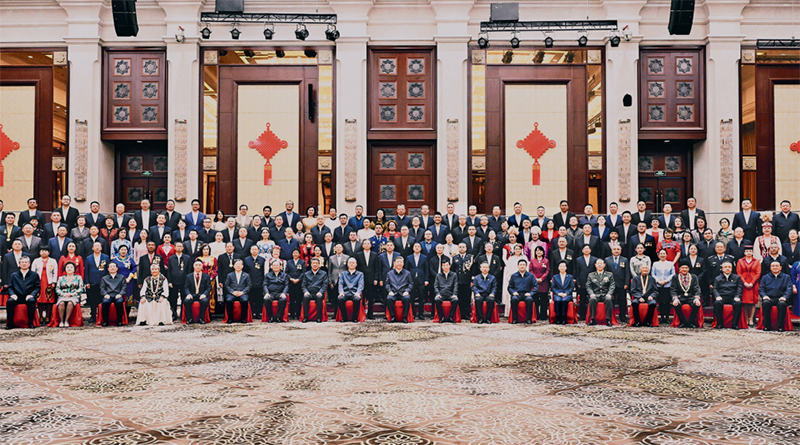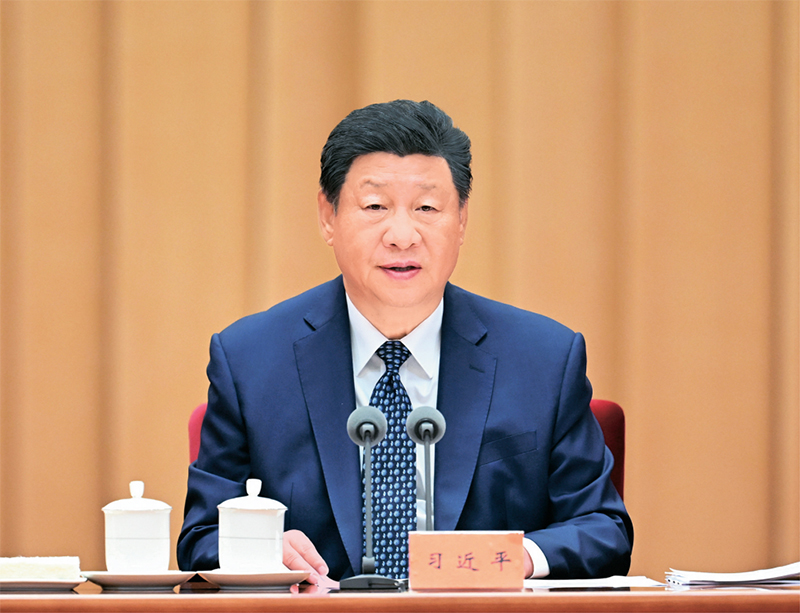The Formation and Development of the Chinese National Community Represents the Will of the People, the Trend of the Times, and Historical Inevitability
The Chinese nation is a great nation with over five thousand years of civilization. All ethnic groups in China jointly developed our vast territory, built our unified multi-ethnic country, wrote our glorious history, created our splendid culture, and cultivated our great national spirit. The formation and development of the Chinese national community represents the will of the people, the trend of the times, and historical inevitability.
—Shared bloodlines among all ethnic groups form the historical foundation for the formation and development of the Chinese national community. All ethnic groups have lived and multiplied together on Chinese soil, maintaining intricate blood and kinship relationships, gradually forming an integrated community of shared destiny where each is part of the other, diverse yet unified and inseparable. History fully demonstrates that the Chinese nation is the result of long-term interaction, exchange, and integration among various ethnic groups. Only through continuous unity, integration, and conscious integration into the larger Chinese national family can all ethnic groups achieve a better future.
—Shared beliefs among all ethnic groups constitute the internal driving force for building a unified multi-ethnic country. Since ancient times, the Chinese nation has upheld the concepts of “shared customs across the land” and “great unity under heaven,” viewing grand unification as “the constant principle of heaven and earth, the universal truth of past and present.” Since the Qin dynasty unified China, whichever ethnic group ruled the central plains took unifying the country as their mission, consistently upholding the shared belief that the territory must not be divided, the country must not fall into chaos, the nation must not be dispersed, and civilization must not be interrupted. History fully demonstrates that our unified multi-ethnic country was built jointly by all ethnic groups and must be maintained, consolidated, and developed together by all ethnic groups.

—Cultural interconnectedness among all ethnic groups forms the cultural genes that shape the pluralistic and integrated civilization pattern of the Chinese nation. The cultures of various ethnic groups, through mutual learning, integration, and inclusiveness, gradually transcended regional boundaries, blood lineages, and religious beliefs, converging to form Chinese culture with strong cohesion and appeal, creating the pluralistic yet integrated pattern of Chinese civilization. History fully demonstrates that the splendid Chinese culture was created jointly by all ethnic groups. To achieve new glories in socialist culture, we must continuously strengthen identification with Chinese culture and enhance mutual learning and integration among the cultures of all ethnic groups.
—Economic interdependence among all ethnic groups constitutes a powerful force for building a unified economic entity of the Chinese nation. China’s vast territory features diverse resource endowments across regions, with strong economic complementarity and high interdependence. All ethnic groups have maintained economic relations characterized by mutual exchange, mutual benefit, and win-win cooperation, significantly enhancing the country’s overall strength and promoting the formation and development of the Chinese national community. History fully demonstrates that only by continuously integrating into the broader national development context and strengthening economic exchanges and cooperation can all regions and ethnic groups better promote national economic prosperity and achieve their own economic development.
—Emotional closeness among all ethnic groups forms the strong bond of the Chinese national family. Harmonious coexistence, brotherly affection, and mutual support have always been the mainstream of ethnic relations in China. The close fraternal bonds among all ethnic groups have left many historical anecdotes. Particularly during the processes of resisting foreign aggression, preventing division, and maintaining unity, people of all ethnic groups demonstrated unprecedented unity and shared hatred against the enemy, writing the great epic of the Chinese nation’s arduous struggles and magnificent achievements. History fully demonstrates that emotional closeness is the strong bond for forming and developing the Chinese



